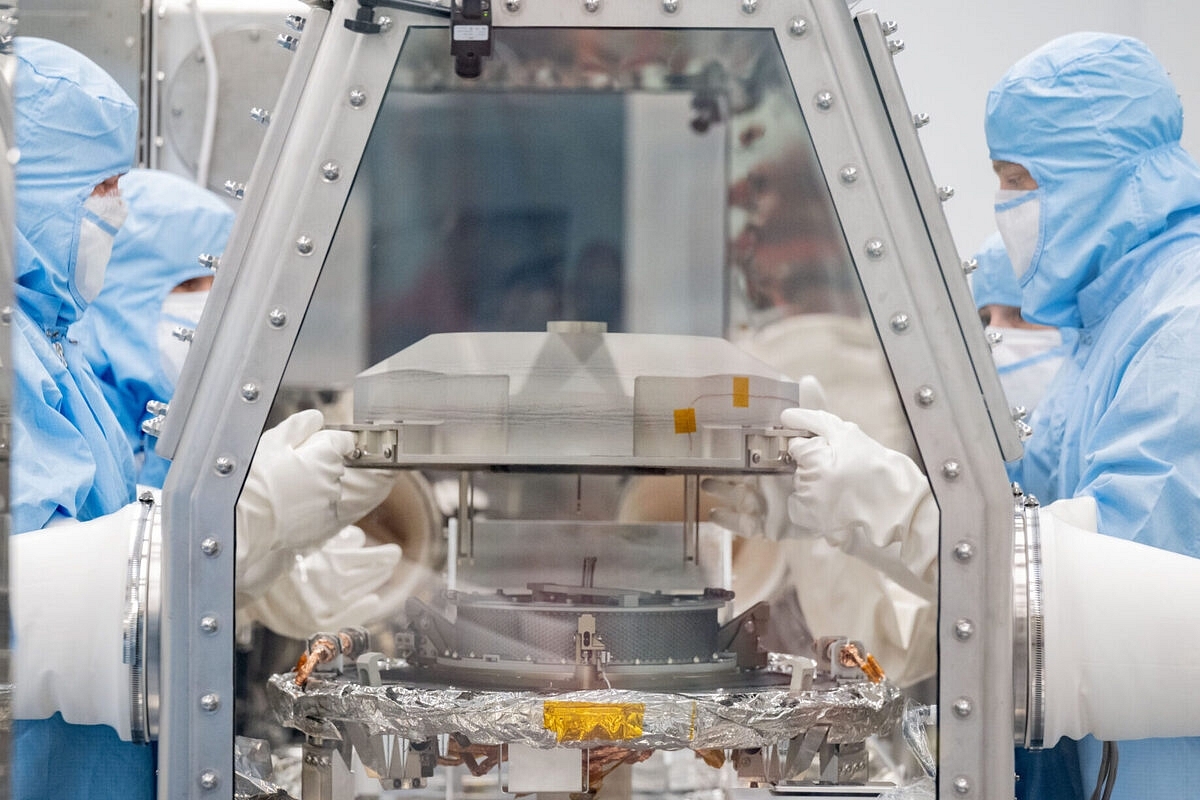Science
NASA's Osiris-REx Returns To Earth With Samples From 4.5 Billion Years Old Asteroid, To Help Study On Space Threats

OSIRIS REx Asteroid Sample Return lid opening
NASA has achieved a significant milestone by bringing back its first asteroid sample after a seven-year endeavor.
The space probe, Osiris-REx, returned with the largest asteroid samples ever retrieved from space. Upon opening the probe, scientists found black dust and debris on its avionics deck.
Osiris-Rex was launched in 2016 and successfully landed on the asteroid Bennu, collecting approximately nine ounces (250 grams) of dust from its rocky surface. NASA aims to study this debris to gain a better understanding of the types of asteroids that could pose a threat to Earth.
After covering a staggering distance of 3.86 billion miles, the spacecraft safely landed in the Utah desert.
The capsule containing the asteroid samples made a fiery descent through Earth's atmosphere, reaching speeds exceeding 27,000 miles per hour and enduring temperatures as high as 5,000 degrees Fahrenheit.
To slow its descent, the capsule deployed two parachutes, although the main parachute opened at a higher altitude than planned.
A news conference scheduled for 11 October will provide more details about the sample, with the majority set to be preserved for future study.
This research is expected to offer valuable insights into solar system formation and Earth's habitability.
Asteroids, like Bennu, date back around 4.5 billion years can provide critical information about the solar system's evolution.
Scientists believe Bennu, with its carbon content and trapped water molecules, could offer significant revelations.
Although there's a tiny chance (one in 2,700) that Bennu could crash into Earth, it's not expected to happen until the year 2182. NASA has shown it can change an asteroid's path through a successful test, just in case we need to protect Earth from a collision in the future.
Support Swarajya's 50 Ground Reports Project & Sponsor A Story
Every general election Swarajya does a 50 ground reports project.
Aimed only at serious readers and those who appreciate the nuances of political undercurrents, the project provides a sense of India's electoral landscape. As you know, these reports are produced after considerable investment of travel, time and effort on the ground.
This time too we've kicked off the project in style and have covered over 30 constituencies already. If you're someone who appreciates such work and have enjoyed our coverage please consider sponsoring a ground report for just Rs 2999 to Rs 19,999 - it goes a long way in helping us produce more quality reportage.
You can also back this project by becoming a subscriber for as little as Rs 999 - so do click on this links and choose a plan that suits you and back us.
Click below to contribute.
Latest